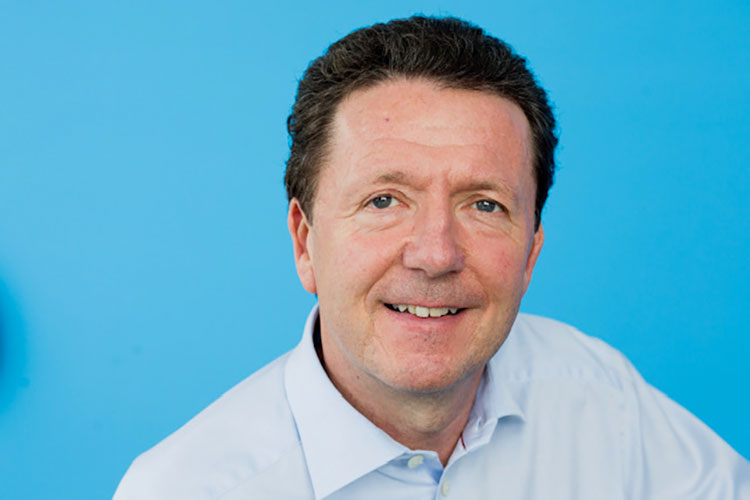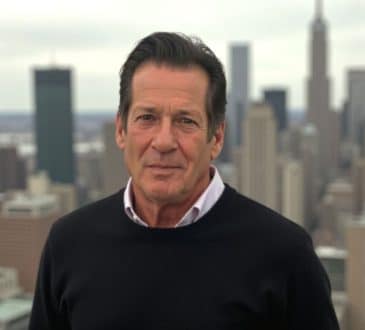CEO Spotlight: Felix Project Chairman Gavin Darby Comments on How The Felix Project & Food For London have been Feeding London since Lockdown

While the number of Londoners who can’t afford meals skyrockets, The Felix Project is collaborating with Food For London Now to tackle the effects of COVID-19 head-on, delivering food across the city.
As unemployment rates and food poverty levels rise at the hands of the pandemic, The Felix Project is providing 100,000 meals to vulnerable households, charities, and schools every day. Partnered with The Evening Standard’s ‘Food For London Now’, an appeal to feed those who are struggling during the COVID-19 crisis, The Felix Project is now able to deliver meals equalling the weight of three and a half double-decker buses on a daily basis. The joint scheme supports 75 schools, holiday clubs, and charities.
Gavin Darby, The Felix Project’s Chairman, is delighted with the achievements that the Project has made in collaboration with Food For London Now.
‘’Food insecurity has always been an underlying issue in London, and unfortunately, due to the pandemic, it’s only going to become a bigger problem.”
Here, in an exclusive interview, Gavin discusses how his previous career has informed his new role as The Felix Project’s Chairman.
When did you realise you wanted to pursue a career in your industry? Did anything, in particular, bring you there?
I decided at university that I liked Marketing, so I looked for a job in FMCG (consumer goods). It just so happened I started in a Food company. In fact, both my father and his father had been in the wholesale fresh-food business all their careers, so, in a way, I was the third generation in the industry.
What advice do you wish you had received when you were younger?
I have been fortunate to have had some great advice from some great mentors right through my career. They have helped me take less obvious routes forward. The one piece of advice I always give is: be patient and build your career based on lots of different learning experiences.
Is there anything about your industry (or industries you’ve been a part of) that you feel is misunderstood or misrepresented?
I think the Food industry, until the COVID-19 crisis, has in modern times tended to be taken for granted. Other sectors such as automotive and aerospace get much more government investment and media focus. Food manufacturing is the largest manufacturing sector in the UK, and, in times of crisis, people suddenly realise that there is little more important than feeding the nation and feeding your family. Much of the food manufacturing industry has worked at 120% throughout the last months of the lockdown but with little recognition.
Have you ever experienced an unexpected lesson or realisation at any point in your career?
I’m tempted to say, don’t waste your time with most of the business media! But, instead, I will go with: over the years I have realised there are more politics in many organisations than is apparent. This can be incredibly destructive. So, as a leader, I have gone out of my way to be transparent and to stamp on destructive politics.
You’ve gained experience in a few different industry sectors over the course of your career – how did they impact one another, and how did you make the decision to make these shifts?
Leaving a great beverage business like Coca-Cola I couldn’t imagine working for another. So, I consciously chose another very different industry sector where the consumer was also key, but where I would learn a whole different sector – mobile telecommunications with Vodafone. So, the driver was something different, where I could bring value from FMCG and yet learn all over again.
And yes, they have built on each other. I took the consumer-focus route to market and brought international experience to Vodafone. There, I learned about mobile technology, the internet, and convergence. Now, back in the food industry, I have been able to apply both.
Following the previous question, what is your perspective on making industry shifts in your career? Did you feel there were any benefits or disadvantages?
Massive, massive benefits. If you stay in one company or one industry, then your learning curve flattens out unnecessarily. As you move and layer on non-exec board positions, you really can keep the learning curve steep. That allows you to add more value and be relevant to more situations. The only theoretical downside is that, in the short term, industry shifts can be high risk. It’s tough at the outset.
Do you have experiences outside of work that impacted your perspective or trajectory within your career?
Living abroad in the USA and especially Belgium. Extensive work and travel in Africa and India. These experiences, especially working closely with people of many different cultures, have helped me to develop my communication and collaboration skills. Being prepared to work abroad can be a major accelerator of careers.
How do you define success? Has this definition changed over time?
Early on, I would have defined success as ongoing learning, career progression, and earning to support a family. As a leader, it becomes defined by the key success KPIs of the organisation. Nowadays, it’s also more about being able to add demonstrable value to a number of activities and to help people develop.
Do you do anything in your free time that you feel has impacted your work (or allowed you to step away from it)?
I run a lot. I ran my first marathon at 40 and my latest in Barcelona a couple from years ago. I have run all over the world. Running allows me to be fit for work, and, most importantly, it offers massive mental benefits.
Recently, you took the position of Chairman at the Felix Project. Can you tell us a bit more about your role and what led you to this organisation?
I have always wanted to give more back.The Felix Project is a fantastic Charity for two reasons. Firstly, uniquely, it is in effect a two-cause Charity (overcoming food waste and food poverty). It uses the recovery and redirection of food waste to address the mega issue of food poverty in London. Secondly, it’s young and dynamic. The demand for the charity is such that it feels just like a tech start-up!
Have you read?
World’s Trendiest Countries.
World’s Best Countries For Entrepreneurship.
World’s Best Countries For Cultural Influence.
World’s Best Countries For Its Citizens To Live.
O’Mega superyacht and TITANIA superyacht available for Luxury Superyacht Charter.
Bring the best of the CEOWORLD magazine's global journalism to audiences in the United States and around the world. - Add CEOWORLD magazine to your Google News feed.
Follow CEOWORLD magazine headlines on: Google News, LinkedIn, Twitter, and Facebook.
Copyright 2025 The CEOWORLD magazine. All rights reserved. This material (and any extract from it) must not be copied, redistributed or placed on any website, without CEOWORLD magazine' prior written consent. For media queries, please contact: info@ceoworld.biz








